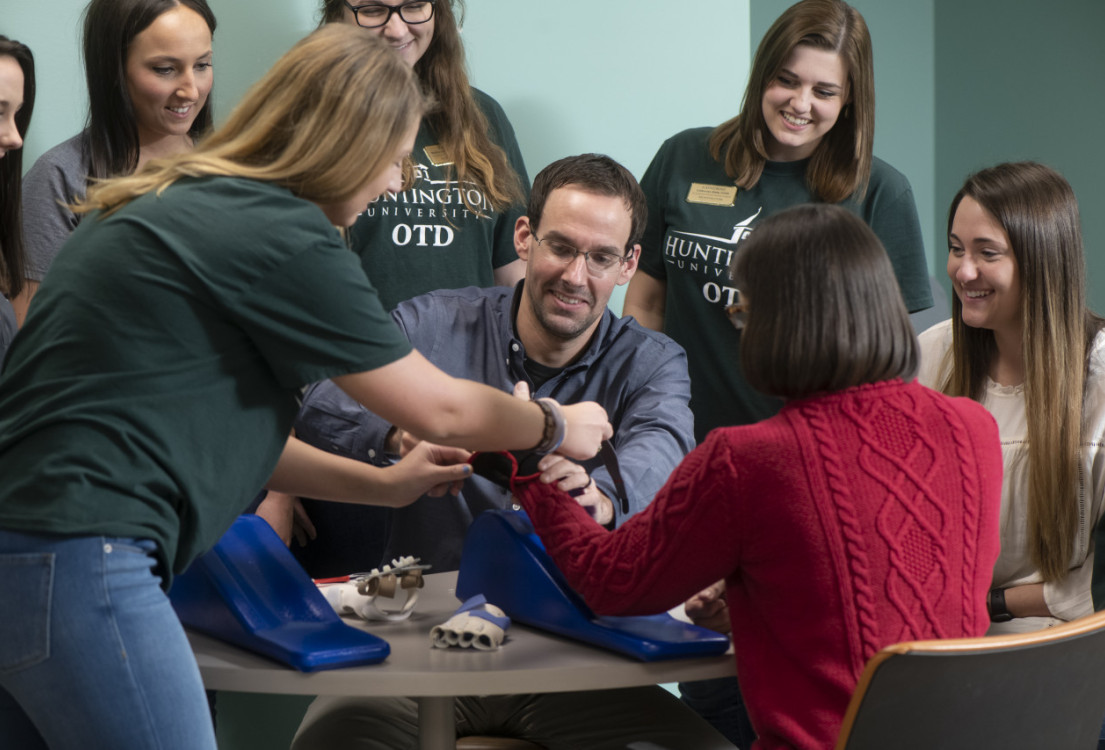4 Ways to Use Your OTD Degree Outside of the Clinic
The main priority for most OT students is working in some type of clinical setting to help people recover the ability to live their lives and do the things that are most meaningful to them. Whether it is helping a child develop handwriting skills, teaching an older adult to walk again after a stroke, or restoring use of the hands after a traumatic injury, OTs are experts at promoting function in a clinical setting. However, earning your Doctor of Occupational Therapy degree (OTD) also creates many other opportunities. Here are just a few ways you might use your degree outside of traditional clinical practice:
Consulting
OTs can work as consultants within healthcare or the corporate world as well as work in industry. For example, in an assisted living facility, an OT consultant may provide recommendations or education on fall prevention for nursing staff or make other safety recommendations for residents. For a company with many office workers, an OT consultant might evaluate workstation ergonomics to ensure employees are optimally positioned to prevent injuries and increase productivity. Consulting work is often flexible and provided on an “as needed” basis depending on the needs of the organization, allowing therapists to simultaneously work full-time in a more traditional setting.
Entrepreneurial
Most doctoral programs in occupational therapy include a course on leadership and management that covers the business side of the profession. Entrepreneurial opportunities may be simple, such as establishing a sole proprietorship and contracting yourself to provide a specific service without other employees. For the more business-minded graduate, developing and owning a private practice may be the aim. Regardless of the scale of the business, a doctoral degree in occupational therapy provides the skills necessary to pursue entrepreneurial goals. Additionally, the doctoral degree, with its emphasis on leadership and management, provides a foundation and preparation to serve in administrative or managerial roles for existing organizations and clinical settings. Doctoral-level education prepares students to serve across the spectrum of organization leadership — from the clinical manager level all the way to an executive leadership team.
Expert Witness
OTs are trained to analyze all aspects of function — the individual and their functional capacity, the surrounding environment, and the specific occupation being performed. This unique perspective is often an asset for legal reasons. For example, an injury sustained on the job may require an assessment of the functional impact on the individual. An occupational therapist can speak to the physical, psychosocial, and functional impact of the injury as well as any environmental contributors. As such, OTs are often retained by lawyers to provide expert witness that may involve deposition or testimony to a jury. This is a form of advocacy for individuals who have sustained life-altering injuries and are seeking restitution.
International Mission Work
There are many ways that OTs can serve in low- or middle-income countries around the world as service providers and advocates. Seating and mobility services are one avenue of service, providing customized wheelchairs, walkers, canes, and crutches, along with related education and training, to individuals with disabilities. We often take for granted basic durable medical equipment (DME); however, for many, this valuable equipment and its related services are difficult or impossible to obtain. There are many organizations that offer short-term medical mission (STMM) opportunities for licensed occupational therapists to serve in this and in similar capacities, and the benefits are so rewarding.
———
As you consider pursuing a doctoral degree in occupational therapy, think about your clinical interests, but also broaden your perspective and identify ways you might use your degree to serve others outside of clinical practice. Learn more about the options available to you with a Doctor of Occupational Therapy degree from Huntington University at huntington.edu/OTD.

